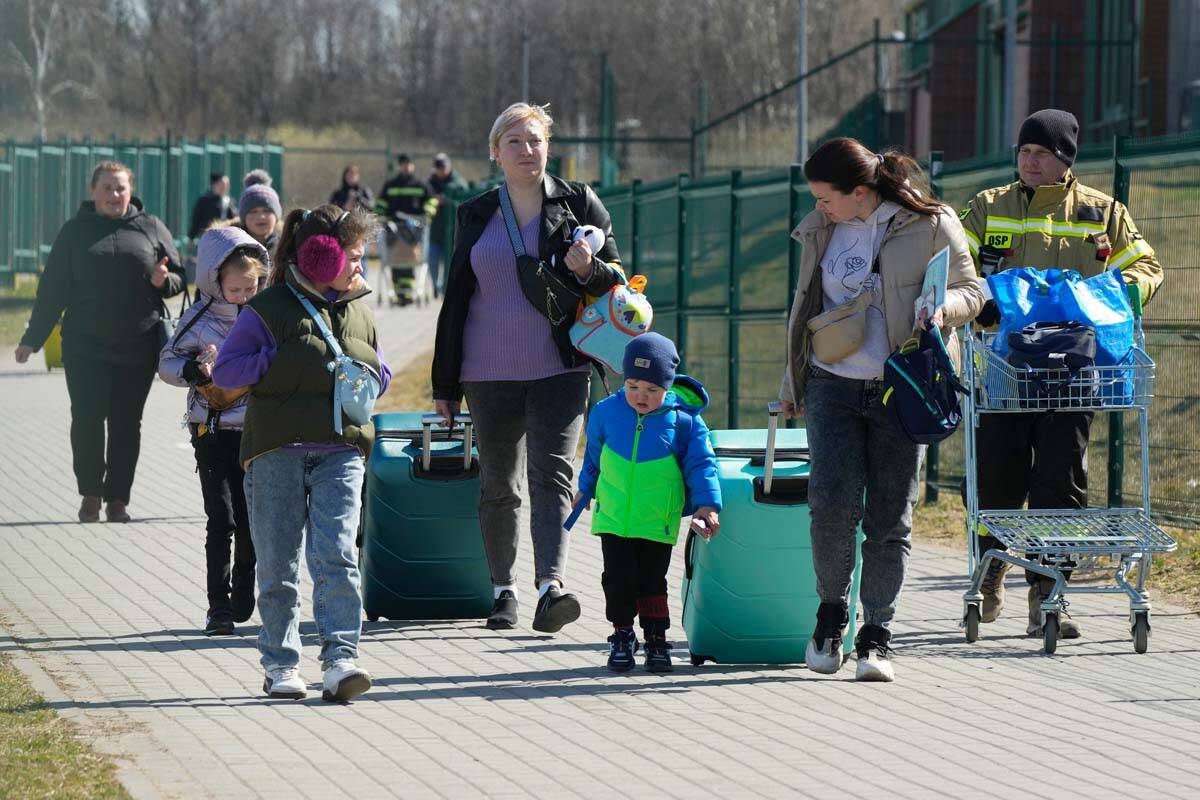RUBEN NAVARRETTE JR.: Refugees don’t wreck economies, they rebuild them
From the vantage point of former Secretary of State Madeleine Albright, the United States was the world’s only “indispensable nation.” Albright, who died last month, argued that America had repeatedly earned the title because: “We stand tall, and we see further into the future.”
That quote tickles my patriotism. And once upon a time, it may even have been true. But is it still the case today?
In 2022, does America really stand tall? Can the land of the free and the home of the brave still see far into the future? Or is America too distracted, and too afraid, to confront the world in all its ugliness?
I have my doubts.
Consider the tragedy in Ukraine, which will soon enter its second month.
President Joe Biden last week described as “genocide” the inhumanity that Russian forces are visiting upon the Ukrainian people. More than once, he has blasted Russian President Vladimir Putin as a “war criminal.” Tough talk is a Biden trademark.
Yet beyond combative rhetoric, the administration has been inept and timid in combating evil. It’s reluctant to use the only weapon that evil understands: force.
There is reportedly in Ukraine a quip floating about that sounds like gallows humor. America, it is said, is ready to fight Russian aggression down to the last Ukrainian.
Biden probably won’t write history, although he does have a knack for writing checks. This week, he announced another $800 million in military assistance to Ukraine, expanding the scope of the weapons systems that have been given to include heavy artillery. This brings the total military aid since Russia invaded its neighbor in late February to more than $2.5 billion.
One way to write history is to welcome the stranger.
And that’s why, in 2022, the world’s actual indispensable nation is not far from Albright’s birthplace of Prague, in what is now the Czech Republic — the country of Poland.
The United Nations reports that, as of April 13, more than 4.7 million people have fled Ukraine. Of that number, about 2.7 million people have settled in Poland.
Thanks to the generosity and empathy of the Polish people, many Ukrainian refugees have found a warm welcome. They are not met with hostility but with hot soup — and open arms.
Every day, Poles drive to the Polish-Ukrainian border, scoop up refugees and take them to their homes.
In America’s immigration debate, the extremes won’t give up an inch. In Poland, people are giving up their beds. In fact, the Poles could teach the Americans a thing or two about how to treat refugees. Like not assuming the worst.
Refugees are often different, desperate and downtrodden. But that doesn’t make them dangerous or defective. They show up at a border looking for safe haven and second chances, not the opportunity to make trouble or wreak havoc.
For instance, it is not an unwritten rule that refugees drag down the economy of any country that takes them in.
Tell that to Paul Webster Hare, senior lecturer in international relations at the Frederick S. Pardee School of Global Studies at Boston University. During a recent appearance on “The Michael Smerconish Show” on Sirius/XM, Hare told the host — matter-of-factly — that Poland had “been burdened by this major influx of refugees, which is not going to help the Polish economy.”
On the ground in Poland, the facts say otherwise. According to John Lynch, a founder and board member of the American Chamber of Commerce in Poland, who lives east of Krakow — about two hours from the Ukrainian border — many of those refugees are actually having a positive influence on the economy.
“There was a labor shortage here a month ago,” Lynch told Smerconish on a subsequent episode of the show. “We (had) advertisements looking for 25 new people for my factory, and we got about five applications. So it was actually a challenge, and now with all the Ukrainians here, we’ve solved the labor shortage.”
Let’s finally put an end to the slander that refugees destroy economies. There may be short-term strain from having thousands, or even millions, of people who speak a different language show up at the front door. But history is filled with examples of people who went somewhere with nothing and became something because they are hyper-motivated to rise from the rubble and make new lives for themselves and their families.
What country wouldn’t want to take in people who are brave, strong, resilient, loyal, hardworking, determined and grateful for a second chance?
People like that aren’t a burden. They’re a blessing.
Ruben Navarrette’s email address is crimscribe@icloud.com. His podcast, “Ruben in the Center,” is available through every podcast app.






















